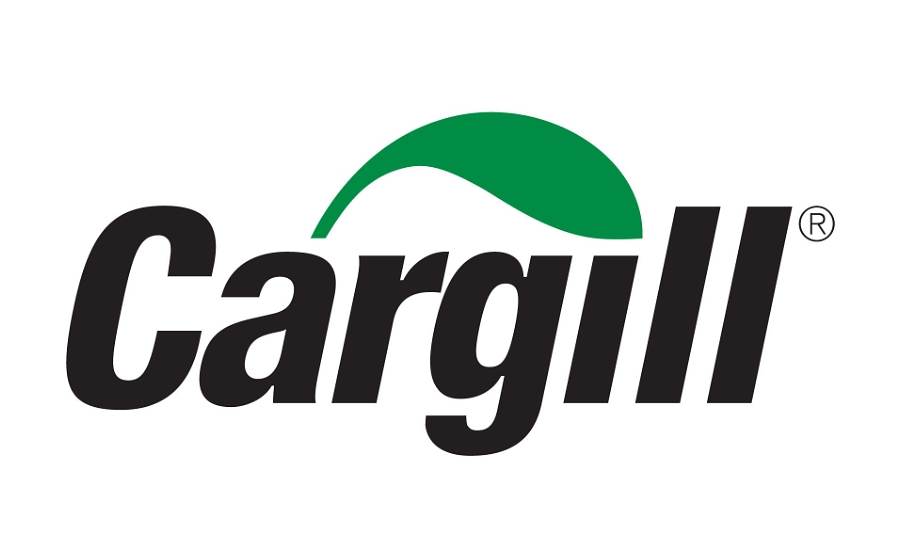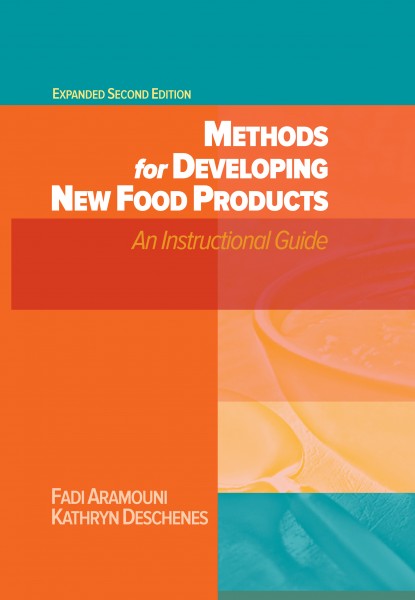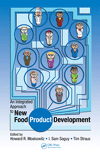At Cargill, sustainability is written into the company's purpose—and woven into core operations including investment priorities, organizational structure and resource allocation. The company recently outlined progress against sustainability goals in critical supply chains including aqua nutrition, cocoa and chocolate, palm, soy, ocean transportation and beef. With a focus on advancing progress on land use, climate change, water, farmer prosperity and human rights, the company is working across every supply chain to drive sustainable production, transportation and operations.
"The call for radical transparency is increasing. More than ever, our customers and consumers want to understand the story behind the products they buy," said Jill Kolling, vice president of global sustainability, Cargill. "By investing and partnering on solutions to enhance transparency in the food system, we can deliver meaningful and sustainable impact on the ground and increase consumer confidence."
Over the past year, Cargill adopted global sustainability efforts to more quickly advance progress. The company established a science-based commitment to reduce supply chain emissions by 30 percent by 2030, a bold climate commitment to reinforce support of the Paris Climate Commitment. Cargill established its Forest Protection Advisory Panel to bring diverse insights and support continuous improvement on the ground. Additionally, a BeefUp Sustainability Advisory Panel will offer critical review of the strategy and resources underpinning the North America beef supply chain sustainability initiative.
Supply Chain-Specific Progress
Cargill Aqua Nutrition
Cargill supports the sustainable growth of the global aquaculture industry by enabling better seafood and helping farmers succeed. With a focus on delivering animal health and welfare through feed and nutrition, Cargill reports in accordance with Global Reporting Initiative (GRI) Standards, which provides a level of transparency to build trust.
- Cargill is educating consumers about the efficiency and favorable ecological foot-print of farmed fish by reporting openly and supporting industry certification schemes. Through partnerships like Seafood Business for Ocean Stewardship (SeaBOS) and Global Salmon Initiative (GSI), Cargill works with customers, food service and retail industries, suppliers, industry partners, and even competitors, to advance – and communicate about – sustainability in the aquaculture industry.
- Last year, Cargill trained more than 5,000 seafood farmers and workers in Thailand and Vietnam through local sustainability workshops and mobile lab services, supporting continued growth of sustainable practices in these regions.
- In 2019, Cargill ranked sixth out of the top 30 seafood companies on the World Benchmarking Alliance's Seafood Stewardship Index, reflecting their progress on key topics like responsible ingredient sourcing. For example, all of the soy used in Cargill's salmon feeds was certified to RTRS or ProTerra standards or was organic, supporting their deforestation commitments. This sustainability report shows how Cargill has continued to progress in 2019.
Cocoa & Chocolate
Cargill is committed to a transparent and sustainable supply of cocoa, which includes improving the lives of farmers and their communities in the five origin countries from where it directly sources cocoa—Brazil, Cameroon, Côte d'Ivoire, Ghana and Indonesia. Cargill's Cocoa & Chocolate 2018-2019 sustainability progress report is more data-driven to transparently share insights into sustainability progress.
- With the use of barcoded cocoa bags and digital Cooperative Management Systems (CMS), 50 percent of sustainable cocoa beans in the global direct supply chain are now traceable from farm-to-factory.
- Implementation of child labor monitoring and remediation systems (CLMRS) to address child labor has significantly increased. In addition to Côte d'Ivoire, Cargill is also deploying CLMRS in Ghana and Cameroon, reaching a total of 58,800 farmers this past year, extending the reach from 7 percent to 29 percent of the total number of farms in the direct supply chain.
- GPS Polygon mapping of 72 percent of all farmers in the direct supply chain, representing more than 400,000 hectares/980,000 acres of farmland. Cargill is well on its way to identify where the cocoa comes from, which areas may be at risk of deforestation and how to mitigate this risk through specific interventions.
Ocean Transportation
Cargill is bringing increased transparency to the maritime sector and has been one of the first to publish an annual corporate responsibility report since 2017. The company has been transparent about its learning process along the way, which includes recognizing the need for a standard greenhouse gas (GHG) emissions reporting process that will become the industry norm.
- As part of this, Cargill is playing a lead role in designing the Global Maritime Forum's charterers response to the Poseidon Principles—a workstream that has been tasked with developing such a process.
- Cargill continues to reduce its CO2 emissions by operating a more energy-efficient fleet and by retrofitting energy-saving devices onboard some of our vessels and, over the last two years, has reduced their aggregated gross CO2 emissions by around 800,000 metric tons.
- Last year was an important year for Cargill's Ocean Transportation business as they launched a number of initiatives and partnerships to bring energy-reducing solutions both to Cargill's fleet and customers. These include Project Njord with Maersk Tankers and Mitsui & Co. (to bring turn-key energy-saving solutions to the market), and the growth of its parceling business.
Palm Oil
Cargill is on track to deliver its 2020 commitments, making significant progress in sustainable palm oil since introducing the Policy on Sustainable Palm Oil in 2014. These commitments include:
- Cargill is on track to eliminate deforestation in all commercial palm concessions in our third-party supply chain by the end of 2020.
- Cargill has achieved 93 percent traceability to mills and 48 percent to plantations. The company continues to work towards its goal of providing traceability to plantations by the end of 2020 in high-risk landscapes, implementing a targeted, risk-calibrated approach.
- In the fourth quarter of 2019, 93 percent of Cargill's palm oil volume globally was covered by NDPE policies and 58% of our direct traders/refiners had put in place a credible NDPE implementation plan to cover their supply chains.
- Cargill established a clear and transparent process for managing and resolving NDPE grievances. To provide transparency, Cargill disclosed grievances that fall outside the scope of their procedure.
Soy
Cargill's progress on its Soy Action Plan – South America Origins is reported semi-annually. During the first half of this year, Cargill continued to steadily pursue its objective of building deforestation-free supply chains. Cargill has not wavered in its deep commitment to protecting forests and native vegetation in South America, or in its belief that this can be done in ways that are economically viable for farmers and local communities.
- Cargill completed mapping of its Brazil supply chain with georeferenced single points six months ahead of schedule, accelerating its efforts to increase traceability.
- Cargill expanded its direct engagement with farmers in Brazil, including the launch of a new partnership with the largest farmer association in the state of Bahia, one of four states in the Matopiba region that includes much of the Cerrado.
- Cargill continued to grow its SSS certification program in Brazil and Paraguay, providing a larger market for soybeans grown through verified sustainable methods. Farmers who commit to this program pledge to produce their crops under three basic criteria: use of best agricultural practices; protecting worker welfare; and managing greenhouse gas emissions under a continuous improvement process.
Beef
Through its BeefUp Sustainability initiative, Cargill is engaging innovative minds to explore impactful ways to drive progress toward its greenhouse gas reduction commitment.https://www.cargill.com/story/cargill-aims-to-beefup-sustainability
- Cargill sponsored the Yield Lab Institute's Manure Challenge, which guides startups as they develop innovative solutions and products that enable economic and environmental benefits for farmers with effective manure management practices. The challenge winner will be selected today in a live virtual event.
- In collaboration with Texas Tech University, Cargill is conducting a study to further understand the potential sustainability impact of cross-breeding dairy and beef cattle, which could result in decreased greenhouse gas emissions by improving overall productivity.
"Across our supply chains, we've demonstrated transparent progress against our sustainability goals, but there is still more to be done across the industry," said Kolling. "With continued partnership and collaboration, agriculture is how we can assure the dependability of future supply chains, empower communities and contribute to the development of economies."
In addition to its sustainability work, Cargill is focused on supporting and lifting up agricultural communities around the world, especially as they continue to grapple with the spread of COVID-19. The company has contributed to funds dedicated to those whose livelihoods have been most impacted by the virus including the National Restaurant Association Foundation Employee Relief Fund and the American Farmland Trust's Farmer Relief Fund. The company has also donated 3 million pounds of food to local community organizations and food shelves to help keep families fed across the globe. You can read more about these community efforts at: https://www.cargill.com/news/supporting-our-communities-during-the-coronavirus-pandemic.
Visit www.cargill.com/sustainability/supply-chains to learn more about Cargill's efforts to drive sustainability across its operations.









